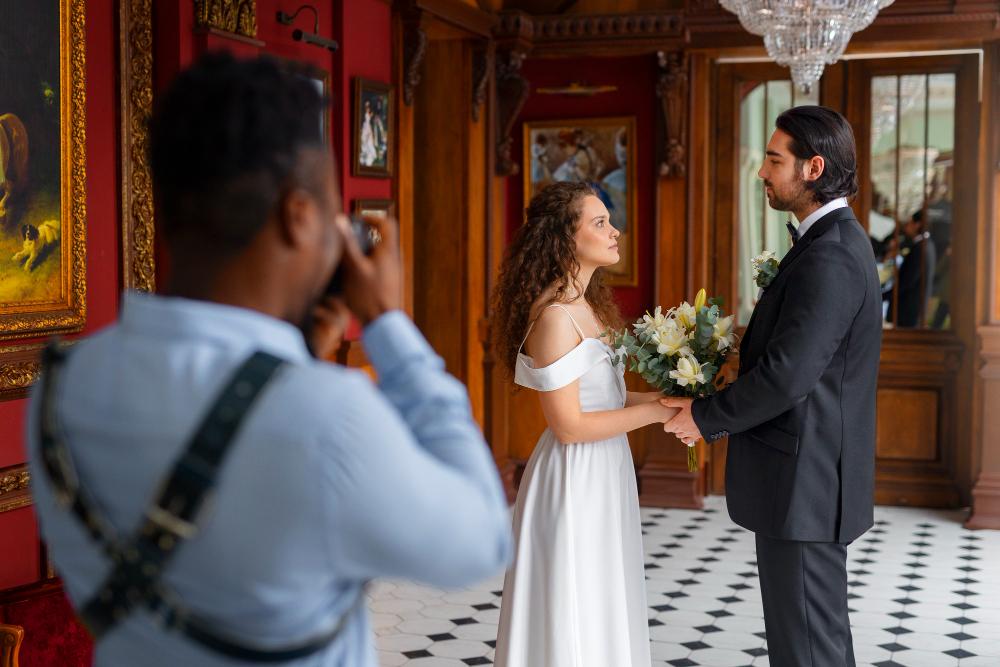Court Marriage in Karachi – Step-by-Step Legal Process for 2025

Court Marriage in Karachi has become one of the most preferred legal options for couples who want a simple, private, and lawful way to solemnize their union. In today’s modern society, many couples choose this method over traditional weddings because it saves time, ensures privacy, and provides full legal recognition. If you’re planning to get married legally in 2025, this guide will walk you through every step of the process from eligibility requirements to obtaining your official NADRA marriage certificate.
What Is Court Marriage and Why Is It Important in Karachi
Court marriage is a legally recognized marriage conducted under Pakistani law in the presence of an authorized Nikah Registrar and witnesses. It follows all Islamic principles while also being registered through legal authorities, ensuring that the couple’s marriage is valid in both religious and legal terms.
In Karachi, court marriages have become increasingly popular among working professionals, students, and couples who prefer a peaceful and efficient process. Many couples turn to Nikah Wala, a trusted legal service provider, to ensure that the entire marriage procedure is handled professionally and confidentially.
Legal Framework for Court Marriage in Pakistan
Court marriages are conducted under the Marriage Act and relevant family laws in Pakistan. The process must comply with Islamic teachings, which require the free consent of both the bride and groom, the presence of witnesses, and proper registration. The Union Council is responsible for issuing the Nikah Nama (marriage contract), which can later be verified through NADRA.
Both Karachi and Islamabad follow the same national legal framework, but there can be slight procedural variations depending on local administrative offices.
Eligibility Criteria for Court Marriage in Karachi
To be eligible for a court marriage in Karachi, both individuals must:
-
Be at least 18 years of age.
-
Be of sound mind and fully consenting.
-
Be free from any existing marriage.
Muslim couples must both profess Islam, while interfaith marriages require specific legal documentation. The consent of both parties is a key legal and Islamic requirement, ensuring that the marriage is entered into freely without pressure or coercion.
Required Documents for Court Marriage in Karachi
Before starting the process, it’s crucial to gather all the necessary documents. These typically include:
-
CNIC copies of both bride and groom.
-
CNIC copies of two adult witnesses.
-
Passport-sized photos of both parties.
-
Affidavit of free will from the bride.
-
Divorce or death certificate (if previously married).
-
Proof of residence or address in Karachi.
Having these documents ready ensures that the process runs smoothly. Legal experts like Nikah Wala can assist you in preparing and verifying all paperwork to avoid any delays.
Step-by-Step Process of Court Marriage in Karachi
Step 1: Consultation with a Legal Expert
The first step is to consult a qualified lawyer or marriage consultant. Professionals review your documents and confirm eligibility according to Pakistani family law. Many couples find it convenient to rely on specialized legal services that handle everything from document verification to registration.
Step 2: Preparation of Affidavits and Documents
Next, the legal team prepares your free will affidavit and other necessary declarations confirming that the marriage is being conducted with mutual consent.
Step 3: Nikah Ceremony Before the Registrar
The Nikah (Islamic marriage ceremony) is performed by a licensed Nikah Khawan or Qazi in the presence of two witnesses. The Nikah Nama is then filled, signed, and officially sealed.
Step 4: Registration with the Union Council
Once the Nikah is completed, the marriage documents are submitted to the local Union Council for registration. The council issues an official marriage certificate, which serves as proof of the legal union.
Step 5: Obtaining the NADRA Marriage Certificate
After registration, the couple can apply for the NADRA marriage certificate, which is the official document required for immigration, visa, and other legal purposes.
Step 6: Optional Legal Confirmation
For couples planning to move abroad, an additional attestation or affidavit from the court can be obtained to authenticate the marriage further.
Cost and Duration of Court Marriage in Karachi
The cost of a court marriage in Karachi varies depending on legal services and documentation needs. On average, it ranges between Rs. 10,000 and Rs. 25,000. The process can often be completed within a single working day if all documents are complete and properly notarized. Urgent services and translations may cost slightly more.
Common Misconceptions About Court Marriage
A common myth is that court marriages are only for eloping couples this is entirely false. Court marriages are a legitimate and fully recognized legal process for any consenting adults who wish to marry. Another misconception is that they are un-Islamic, which is incorrect. Every court marriage includes a valid Nikah performed according to Shariah, making it both religiously and legally sound.
Why Choose Nikah Wala for Court Marriage in Karachi
Choosing the right legal support can make a big difference in your marriage process. Nikah Wala offers expert services for court marriages, ensuring smooth handling of all legal documentation and NADRA registration. Their professional lawyers and Nikah Registrars guide you through every step, ensuring full confidentiality and compliance with Pakistani law. They also assist couples who wish to conduct a court marriage in Islamabad, providing nationwide legal support for hassle-free marriage registration.
Conclusion
Understanding the complete process of court marriage in Karachi helps couples plan their big day confidently and legally. With proper guidance, the procedure is quick, safe, and fully recognized by both Islamic and state authorities. By working with reliable experts like Nikah Wala, couples can ensure that their marriage is legally secure and recognized for all future needs — both in Pakistan and abroad.
- Art
- Causes
- Crafts
- Dance
- Drinks
- Film
- Fitness
- Food
- Jocuri
- Gardening
- Health
- Home
- Literature
- Music
- Networking
- Alte
- Party
- Religion
- Shopping
- Sports
- Theater
- Wellness



